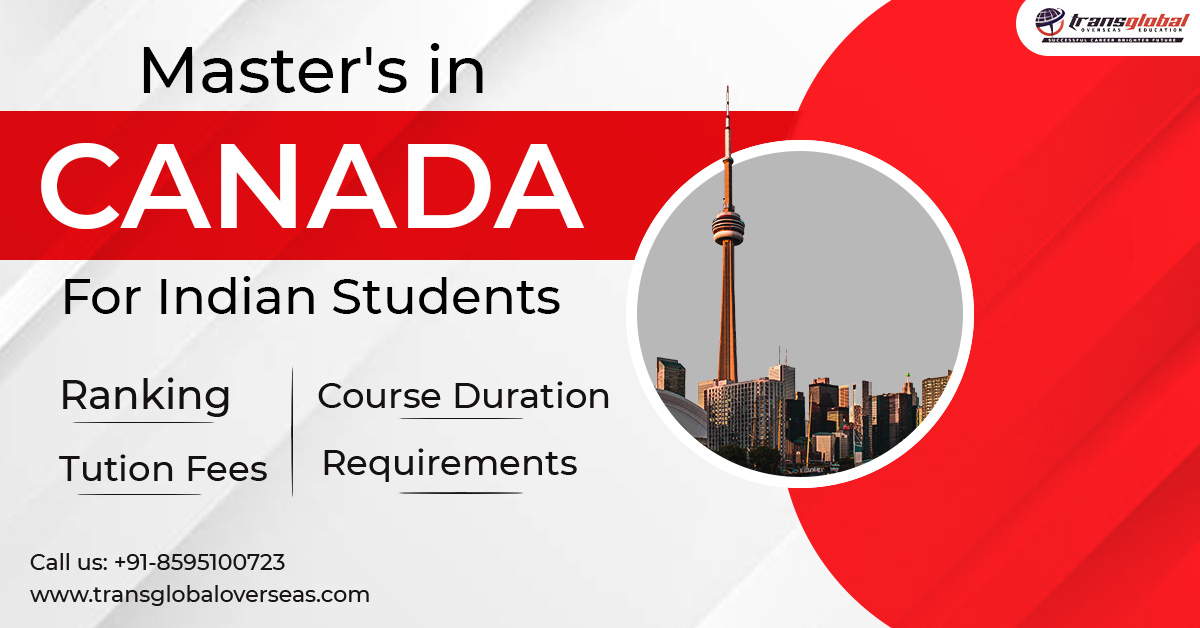Dreaming of pursuing higher education in a vibrant and diverse environment? Look no further than Canada! Renowned for its world-class universities, stunning landscapes, and multicultural cities, Canada offers an exceptional academic experience for students seeking to further their education. In this comprehensive guide, we'll delve into the benefits of pursuing a Master's degree in Canada, explore top universities, program options, admission requirements, and post-graduation prospects.
Why Pursue a Master's in Canada?
Canada offers a compelling proposition for Master's students:
- Top-Ranked Universities: Canada boasts several universities consistently ranked among the best globally, ensuring a high-quality educational experience.
- Diverse Programs: Explore a vast array of Master's programs across various fields, from engineering and business to computer science and humanities.
- Post-Graduation Work Permit: A significant advantage! Graduate from a Canadian program and gain valuable work experience through the Post-Graduation Work Permit program. This can enhance your resume and potentially pave the way for permanent residency.
- Multicultural Environment: Canada is a welcoming and diverse country, ensuring a comfortable and enriching experience for international students.
Popular Master's Programs in Canada:
Here's a glimpse into some of the most sought-after Master's programs in Canada:
- Business Administration (MBA): Equip yourself with the skills and knowledge to excel in today's dynamic business world.
- Computer Science: Deepen your expertise in this ever-evolving field, preparing yourself for a rewarding career in the tech industry.
- Data Science: Master the art of extracting valuable insights from data, a highly sought-after skill in various sectors.
- Engineering: Specialize in various engineering disciplines, from civil and mechanical to electrical and software.
- Public Health: Address global health challenges and contribute to improving healthcare systems.
The Application Process:
Here's a simplified overview of the application process for Master's programs in Canada:
- Research and Choose Your Program: Explore universities and programs that align with your academic interests and career goals. Consider program curriculum, faculty expertise, and research opportunities.
- Meet Admission Requirements: Ensure you possess the required academic qualifications, standardized test scores (like GRE/GMAT for some programs), and language proficiency (IELTS/TOEFL).
- Prepare Application Materials: Compile a strong application package typically including transcripts, letters of recommendation, a statement of purpose, and a resume.
- Submit Your Application: Apply directly to the universities of your choice, adhering to their deadlines.
- Secure Funding (Optional): Explore scholarships, research assistantships, and teaching assistantships to help offset tuition costs.
Conclusion:
Embarking on a Master's degree journey in Canada offers a gateway to academic excellence, cultural enrichment, and exciting career opportunities. With its top-tier universities, welcoming communities, and immigration pathways, Canada provides an ideal environment for international students to realize their academic and professional aspirations. Consider pursuing your Master's in Canada and unlock a world of possibilities!
FAQ’s
Why choose Canada for a Master's degree?
Canada boasts top-ranked universities, a vast array of programs, a post-graduation work permit opportunity, and a welcoming multicultural environment.
What are some popular Master's programs in Canada?
Popular choices include Business Administration (MBA), Computer Science, Data Science, Engineering (various disciplines), and Public Health.
How do I apply for a Master's program in Canada?
Research programs, meet admission requirements, prepare application materials (transcripts, letters of recommendation, statement of purpose, resume), submit applications, and explore funding options (scholarships, assistantships).
What are some additional considerations for studying in Canada?
Factor in living expenses in your chosen city and plan for the visa application process after receiving acceptance from a university.






Comments